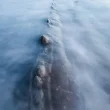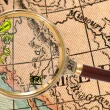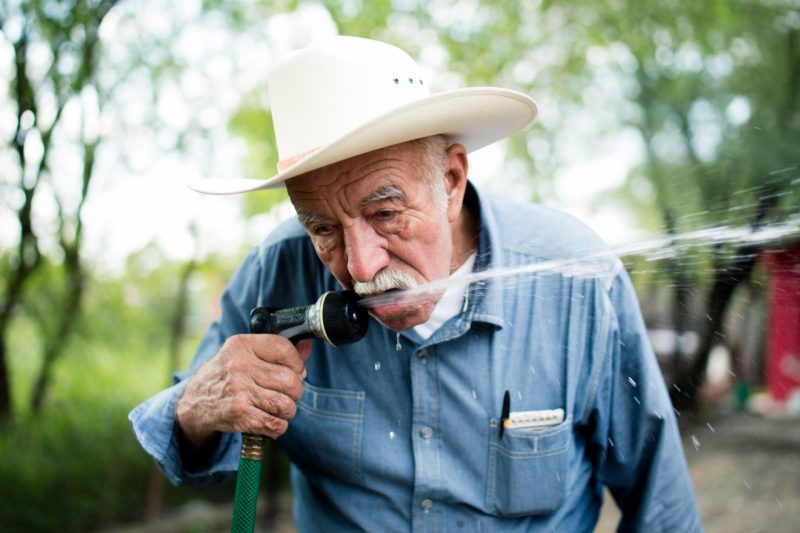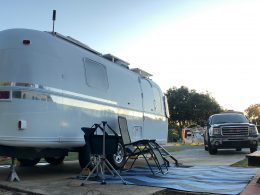While there are many convenient gadgets for camping, there are only a few essentials. You must buy a sewer hose to empty your tanks and a surge protector to keep your RV safe from electricity spikes. You also need access to clean, safe drinking water. This means reading the labels and choosing a hose that meets specific criteria.
Don’t use your garden hose to fill up your fresh tank. It’s crucial to find a safe drinking water hose when RVing. Let’s learn why.

What Is a Safe Drinking Water Hose?
When RVing, you must have access to safe, clean water. You wash dishes, bathe, and cook with water. Don’t assume all water hoses are safe for drinking water. When looking for an RV drinking water hose, you want to see the word “potable.”
Potable means it’s safe for drinking and contains no harmful or toxic chemicals. You also want to find a hose that’s BPA, lead, and phthalate-free.
What Makes a Hose Drinking-Safe?
Manufacturers don’t make standard garden hoses with safe drinking water in mind. These companies produce hoses to water flowers and supply water to a sprinkler system. They can contain mold, bacteria, and some very toxic chemicals.
A study by the Ecology Center in Ann Arbor, Mich., found that “half of the vinyl (PVC) hoses tested contained electronic waste (e-waste) vinyl contaminated with toxic chemicals.” The study found that “PVC (vinyl) hoses frequently contained elevated lead, bromine, antimony, and phthalates in the flexible hose part. Non-PVC hoses did not contain these contaminants.”

As a result, the report called on “national retailers and manufacturers to phase out the use of lead, phthalates and contaminated vinyl scrap plastic in garden hoses.”
Hoses with a “potable” or “drinking water safe” label are usually PVC-free. Polyurethane or non-vinyl hoses are much less likely to contain harmful chemicals because natural rubber hoses don’t need phthalates or BPA to keep them flexible.
This is why it’s essential to see the labels “BPA-free” and “phthalate-free.” In addition, you’ll want a hose with stainless steel or nickel fittings to avoid lead contamination.
Are All White Hoses Drinking Water Safe?
Although you can’t assume that every white hose is drinking water safe, most RV and marine hoses for potable water are white. Camco and Valterra manufacture white drinking water hoses.
However, there are blue hoses safe for drinking water. Whenever in doubt, check the labels on the box.
Is PVC Hose Safe for Drinking Water?
A PVC hose uses phthalates and BPA to secure the plastics and maintain flexibility. These plastics release vinyl chloride, which is toxic and dangerous to the body.
As the Ecology Center study discovered, non-PVC hoses didn’t contain those harmful chemicals. Always choose a natural rubber hose or one with food-grade polyurethane.
HOT TIP
Will a leaky water hose get you KICKED OUT of an RV park?
How Can You Tell If Water Is Safe to Drink?
If you’re concerned about the safety of your water, you can test it. You can’t eyeball water and know whether it’s safe to drink. DIY test kits are available in stores like Walmart or online at Amazon.
You can also buy a test kit and send your water for analysis. Finally, you can boil water for at least one-three minutes to kill all the bacteria and pathogens.
Best Drinking Water Hoses
It’s crucial to your health to purchase a safe drinking water hose. If you’re on a budget, you don’t want to save money on this item. Save money on something that won’t affect your health.
Read the labels and purchase a quality, safe potable water hose. Below are four of the best options for RVers.
Camco TastePURE Drinking Water Hose for RV, 50 feet
This 50-foot Camco drinking water hose is a best seller for a reason. It’s BPA-free and phthalate-free and meets all federal and state-level lead-free laws, including California’s AB1953 and Vermont Act 193 Low Lead Laws.
RVers also recommend this hose because of its durability. It resists kinking and is UV protected for lasting performance. Rated 4.6/5 stars.
BIGFOOT RV Water Hose 25 ft – Drinking Water Hose for RV Camper, Boat
This BIGFOOT hose is an example of a non-white potable water hose. Lead-free, BPA-free, and phthalate-free, this hose complies with all California Prop 65 Regulations. It is a synthetic rubber that won’t kink and is 30% lighter than standard garden hoses.
One user says, “This gorgeous purple non-kink fresh water hose is awesome! It really IS non KINK! No more trying to stand at my fresh water tank and fill it and wrestle with the hose trying to flip is so it stops kinking.”
If you don’t need a 50-foot hose, this BIGFOOT hose is an excellent option. The rating is 4.6/5 stars.
Another option from Camco is this blue 50ft premium drinking water hose. It’s a heavy-duty, reinforced water hose 20% thicker than standard hoses. It’s also an anti-kink hose and has durability with its machined fittings and strain-relief ends.
Lead-free, BPA-free, and phthalate-free, this Camco hose is certified to NSF/ANSI/CAN 61 for drinking water. The rating is 4.7/5 stars.
Camco Heated Drinking Water Hose for RV, 25 Feet
If you camp in locations that remain below freezing during the winter, it’s critical to invest in a quality heated drinking water hose. This Camco hose heats incoming water so the water won’t freeze and damage your pipes. It’s rated for water line freeze protection down to -20 degrees Fahrenheit.
Like the other Camco hoses above, this one is BPA-free, phthalate-free, and lead-free. It’s also CSA Low Lead Content Certified to NSF/ANSI 372 and compliant with all federal and state-level low-lead laws.
Is It Important to Have a Safe Drinking Water Hose?
Nothing is more crucial than your health. It’s not worth it to save a few bucks and use your standard garden hose to fill your fresh water tank.
Don’t risk the dangers of possibly ingesting harmful chemicals. Invest in a safe drinking water hose. Read the labels to ensure you know what you’re buying.
Do you have a potable water hose? Which brand do you prefer?
If You Want the Latest Travel News, Join Our Mailing List
Don’t rely on biased RV industry news sources to keep you informed. Stick with Nomadic News. We publish articles and breaking stories that matter to you every weekday.










